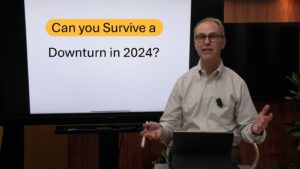If you are like most investors, I’m sure you’ve been watching some of the theatrics going on in Washington and wondering how it might affect you and your investments. There is a delicate balancing act going on between the government and financial markets. The actions of one side have a tendency to affect the other in profound ways. One such affect is on interest rates and government borrowing.
Any kind of default would have the effect of raising the interest rates that the government has to pay on borrowed money. That would force the government to have to borrow more to cover the interest on past debts. The effect, of course, is that government debt increases, which leads to the amount of borrowable money decreasing. According to economic theory, the amount of borrowable funds is limited, so when the demand for funds suddenly goes up, then the cost of borrowing will go up. This is not just isolated to the government’s interest cost. This can also theoretically increase everyone’s cost of borrowing. Businesses and consumers have to pay more as well.
Since one of the costs of doing business is interest expense, this can lead to a reduction in profitability. Because consumers also have to pay more, it may also lead to a general economic slowdown. As we have all witnessed, when business slows down, unemployment eventually goes up. When people aren’t working or are underemployed, government revenue goes down because there is less income to tax. This leads to more government borrowing and on and on the cycle continues.
It’s hard to imagine a scenario where this goes on indefinitely. The reason has to do with self-interest. All sides ultimately will come to the conclusion that the calamity that inevitably follows a government debt default isn’t worth the cost and they eventually take steps to prevent such an occurrence.
A good example of markets understanding this phenomenon was the stock market climb on Thursday and Friday of the previous trading week. News of a potential temporary fix sent stock prices up unexpectedly. Markets often go up before we are out of the woods with whatever the latest calamity happens to be. A point I made in a website video I (ironically) recorded Wednesday evening before the big market jump, was that “this too shall pass”. Keep in mind that stocks may go down Monday and all of next week or they may skyrocket. It is best that, as long term investors, we don’t concern ourselves with it. Life, in general, is rarely predictable. That is also the case with the current climate in Washington and Wall Street. Every party involved will do what they have to in order to benefit themselves and markets will come back or resume their upward movement. For businesses, the goal is to sell things and become or stay profitable. For government officials, the job is to not look like the bad guy who took the cookies away and destroyed the economy. It’s really not that complicated. What IS far too complicated for our finite minds to comprehend is how we’re going to get there. That is why any attempt to get into stocks and out of them at the right time is destined for failure. Effective market timing requires that the investor be able to predict human behavior. It is an impossible task that is beyond our comprehension and the attempt leads to lower returns and greater risk – neither outcome is desirable.




